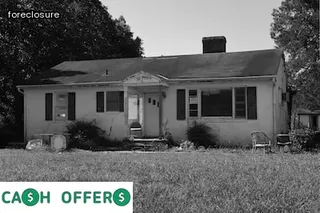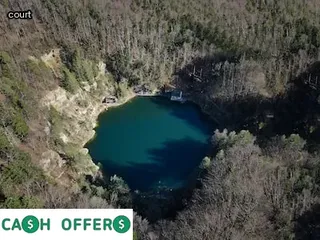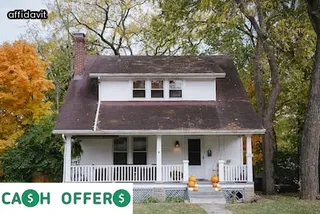When it comes to foreclosure laws and procedures in Vermont, the process can be confusing and difficult to understand. It is important for individuals to be aware of their rights throughout the process, as well as how long the process typically takes.
Generally, the foreclosure timeline in Vermont is between five and seven months, depending on the circumstances of each case. The first step in the process is when the lender files a complaint with the court and serves notice to the homeowner.
This begins a period of negotiation between the homeowner and lender, during which time both parties attempt to come to an agreement. If an agreement cannot be reached, then a hearing will be set before a judge.
The length of this hearing will determine whether or not foreclosure action will occur. During this time, homeowners should also consider other options such as loan modifications or deed-in-lieu of foreclosure agreements that may allow them to remain in their home without having to go through with a foreclosure sale.
Ultimately, understanding all aspects of Vermont foreclosure laws and procedures is necessary for any individual facing potential loss of their home due to financial hardship.

Vermont has specific laws that govern the foreclosure process. It is important to understand these laws, as well as your rights, if you are in danger of facing foreclosure.
Foreclosure proceedings in Vermont start with a public notice being posted and published in newspapers. After this notice is made public, a court hearing is held where the judge will determine whether or not the lender can foreclose on the property.
If they are granted permission to do so, then an auction date will be set and advertised to the public with a minimum bid being set by the court. Bidders may enter sealed bids prior to or on the auction date and whichever offer meets or exceeds the minimum bid set by the court will be accepted.
Once a successful bid is accepted, it takes approximately 30-60 days for title transfer to take place. It's important to note that if you are facing foreclosure, there are certain steps you can take in order to avoid it such as setting up payment plans with your lender or getting assistance from housing counseling agencies.
Additionally, under Vermont law you have 20 days after receiving notice of foreclosure sale to redeem your property by paying off all delinquent payments and costs associated with them.
Missing mortgage payments in Vermont can lead to foreclosure. When a homeowner fails to make their monthly payments on time, they will receive a notice of default from the lender.
This is the first step in the foreclosure process and it gives homeowners a certain amount of time to bring their payments current. If they are unable to do so, then the lender can begin the foreclosure process.
It is important for homeowners to understand their rights during this process as they may be able to negotiate different terms with the lender in order to avoid foreclosure or even postpone it until a later date. Knowing what options are available and understanding the length of time that is associated with each step of the process can help homeowners make informed decisions about their financial future.

The foreclosure process in Vermont begins when a lender or loan servicer files a complaint in the county civil court. This is the first step in the process and it initiates what is known as a judicial foreclosure.
The complaint will include information about why the mortgage is not being paid, including past due amounts, missed payments, and other pertinent details. After this is filed, the homeowner will receive notice of the foreclosure from both the court clerk’s office and from the lender or loan servicer.
At this point, you still have the right to stay in your home during the process unless you are ordered by a judge to vacate prior to completion. During this time, it may be beneficial to contact an attorney or housing counselor who can help you better understand your rights throughout this process.
It is important to remember that each state has different laws concerning foreclosures so it is wise to be aware of those specific laws before proceeding with any action involving your property.
When facing foreclosure in Vermont, it is important to understand your rights as a homeowner. Knowing the length of the foreclosure process can help you take the necessary steps to protect your rights and home.
Under Vermont law, homeowners are given certain protections that guarantee they will have time to respond or take action before their property is taken away. The foreclosure process typically begins with a notice of default that outlines the amount owed and gives the homeowner 30 days to bring payments up to date.
If the borrower fails to do this, then a Notice of Foreclosure will be issued which gives the homeowner an additional 14 days to make payment arrangements with the lender. During this time, the homeowners can also contact legal aid for assistance in better understanding their rights during this process.
Understanding your rights and how long you have can help you retain ownership of your home and avoid foreclosure altogether.

When it comes to stopping a foreclosure in Vermont, there are several options that can be explored. One of the first steps is to understand the length of the foreclosure process and your rights.
In Vermont, the foreclosure process typically begins with a Notice of Default being sent to the homeowner by mail. This document outlines how much is owed and provides details on how to cure the default.
It also informs them of their right to dispute any incorrect information on the notice. If a homeowner fails to respond within 30 days, then they will receive an acceleration notice which gives them 20 days to pay off the outstanding balance or face foreclosure proceedings.
Once a foreclosure lawsuit has been filed in court, homeowners have another 20 days to either reach an agreement with their lender or submit a defense challenging the foreclosure. Depending on the circumstances and any disputes that arise, it can take up to four months for a judge’s final decision before a property is sold at auction or taken back by the lender.
Vermont foreclosure proceedings are initiated by a lender or creditor when a borrower fails to make payments on their mortgage or other debt. The length of the process varies depending on the specific circumstances of the case, but it is important to understand your rights during this time.
In Vermont, deficiency judgments are determined according to certain rules, such as whether the property was sold through an auction or private sale and whether there was any surplus funds after all costs were paid. If a deficiency judgment is entered against you, it will remain in effect until it is satisfied with cash payment or otherwise discharged by court order.
Knowing these rules can help you better prepare for a potential foreclosure situation and make sure that you understand your legal rights throughout the entire process.

When a homeowner falls behind on their mortgage payments in Vermont, the financial institution that holds the loan will send out a breach letter. A breach letter is essentially a demand for payment that is sent to the homeowner when they fail to make payments as outlined in their mortgage agreement.
In this letter, the creditor will outline how much money is owed and provide a deadline by which it must be paid or else foreclosure proceedings will begin. If the homeowner fails to pay by the given date, then the lender may take legal action and begin foreclosure proceedings.
It's important for homeowners to understand what rights they have during this process and how long it typically takes for foreclosure to be completed in Vermont. Knowing these rights could help them avoid losing their home if they are unable to make payments on time.
Reinstating a mortgage can be a complex process, especially in the state of Vermont. Vermont foreclosures can take up to nine months, but understanding how the process works and your rights as a homeowner can help you make informed decisions.
The first step is to receive a notice of default from your lender, which will outline the amount that must be paid in order to bring the loan current. The next step is to pay the delinquent amount in full or submit an acceptable repayment plan.
It’s important to act quickly as foreclosure proceedings will occur if no action is taken within 30 days of receiving the notice of default. Homeowners also have the right to challenge any wrongful foreclosure proceedings and request mediation before or during the court process.
Lastly, it's important to understand that foreclosure laws vary by state, so it's important to research and be aware of your rights in Vermont.

The Vermont foreclosure process is a long and arduous one, but understanding it and your rights can help you to avoid losing your home. Every state has different laws regarding the foreclosure process, and Vermont is no exception.
In the state of Vermont, homeowners have the right to redeem their property even after a foreclosure sale has taken place. This is known as a redemption period, and under certain conditions it may be possible for someone to reclaim their property during this period of time.
The key is knowing what redemption periods exist in Vermont so that you can take advantage of them if necessary. Being aware of all aspects of the foreclosure process will give you the best chance to retain ownership of your home while also adhering to any legal requirements set forth by the state of Vermont.
In Vermont, evictions are an important part of the foreclosure process. It is important for homeowners to understand their rights and the length of a Vermont foreclosure process in order to protect themselves from an unlawful eviction.
If a homeowner defaults on mortgage payments, the lender has the right to foreclose on the property and pursue eviction proceedings against them. Once this happens, it is important for homeowners to know that they have certain rights during eviction proceedings which must be respected by the lender or any other party involved in the foreclosure process.
This includes being given notice of at least 14 days before an eviction can take place, being able to remain in the property until a court orders an eviction, being provided with legal representation if needed, and having access to any documents related to the foreclosure process. It is also important for homeowners to remember that they have access to resources such as state-run housing counseling services and legal aid if they cannot afford representation.
While understanding these rights can help protect homeowners during a Vermont foreclosure process, it is also essential that they are aware of how long these proceedings typically take so they can prepare accordingly.

If you are facing foreclosure in Vermont, you may want to consider seeking professional guidance. An experienced attorney can provide invaluable insight into the process, explain your rights and obligations, and negotiate on your behalf with lenders.
Additionally, an attorney can help you understand how long the Vermont foreclosure process typically takes and recommend strategies for protecting your interests throughout the proceedings. This could include reviewing loan modification options or helping you explore alternatives such as a short sale or deed in lieu of foreclosure.
Many attorneys also offer free consultations so that you can determine if their services would be beneficial to your situation without having to make a financial commitment upfront.
When facing the possibility of a foreclosure in Vermont, it is important to understand your rights and the length of the process. Seeking legal assistance during this time can provide valuable advice and guidance on how best to navigate the situation.
An experienced attorney can help you understand what options you have available, such as loan modification or seeking out a short sale. They will also be able to advise on the timeline for various steps of the foreclosure process and what individual rights are afforded to you by state law.
Additionally, if needed, a lawyer can work with you to defend any claims that may be made against you by your lender. With legal counsel from an expert in foreclosure law, you can rest assured that all possible avenues will be explored until a satisfactory solution is reached.

Vermont's foreclosure process can vary in length based on a variety of factors, including the type of loan and the lender. The state requires a 120-day period before a sale can take place, during which time homeowners have the opportunity to make up missed payments and save their homes.
During this pre-foreclosure period, homeowners may receive notices from their lender detailing the foreclosure process and their rights. After this period has ended, the lender must wait an additional 14 days before initiating a public sale of the home.
If no bids are received for the home at this auction, it is then returned to the lender as part of what is known as REO (Real Estate Owned) status. This can result in a lengthy foreclosure process that could last several months or even longer depending on market conditions and other factors.
Although it can be difficult for homeowners facing foreclosure in Vermont, understanding the timeline of events and your rights throughout this process will help you make informed decisions about your next steps.
Bankruptcy can be a viable option for preventing or delaying a foreclosure in Vermont, though it is important to understand the process and your rights before you decide to pursue this route. When you file for bankruptcy, an automatic stay is issued by the court which halts any further action on collection attempts, including foreclosure.
This could give you some time to reorganize your finances and make arrangements with lenders to avoid losing your home. It is also important to know that filing for Chapter 7 bankruptcy does not always mean that you will be able to keep your home, but if you do not qualify for Chapter 7 then you may be eligible for Chapter 13 bankruptcy instead.
With this type of bankruptcy, you would still need to repay the amount owed on your mortgage in full but over a longer period of time than originally agreed upon. This could provide some much-needed breathing space as well as protection against foreclosure while payments are made.
Additionally, it is worth noting that if all of the other factors surrounding a foreclosure in Vermont are taken into consideration then filing for bankruptcy may not always be necessary. Nonetheless, it remains an option available should circumstances warrant and provides those facing the prospect of losing their home with another avenue to explore.

When it comes to understanding the length of the Vermont foreclosure process and your rights, one alternative option is a deed in lieu of foreclosure. This option allows homeowners to voluntarily transfer ownership of the property back to the lender before the lender takes legal action by filing a foreclosure lawsuit.
A deed in lieu of foreclosure is an agreement between the homeowner and lender, so it's important for homeowners to understand their rights and obligations under such an agreement. Generally, this type of transaction can be completed more quickly than traditional foreclosure proceedings, since it eliminates some court hearings and other legal steps.
Additionally, many lenders will agree to negotiate with borrowers on other aspects of a loan modification or refinancing as part of a deed in lieu arrangement. It's important for homeowners to always consult with an experienced attorney before entering into any agreement with their lender to ensure that their rights are protected throughout the process.
When facing foreclosure, homeowners in Vermont have the option to consider a short sale as a way to avoid or delay the foreclosure process. A short sale occurs when a lender agrees to accept less than what is owed on an existing loan and cancels the debt.
The amount of time it takes to complete the short sale process can vary but typically it’s quicker than the length of a typical foreclosure. All parties involved must agree to terms before the sale can be completed.
In some cases, by entering into a short sale agreement, homeowners may be able to avoid credit damage that could result from a foreclosure. However, there is no guarantee that pursuing a short sale will prevent damage from occurring.
It is important for homeowners in Vermont to understand their rights throughout the entire foreclosure process so that they can make an informed decision about their situation.

Understanding the length of a Vermont foreclosure process and your rights is an important step for homeowners facing preforeclosure. The state of Vermont requires lenders to go through certain steps before they can foreclose on a property, which ultimately provides homeowners with more time to explore options and protect their rights.
One of the key steps in the preforeclosure process is notification from the lender that it intends to start foreclosure proceedings. Homeowners have certain rights during this period, including the right to request mediation or dispute accuracy errors on the loan documents.
Additionally, lenders must provide a notice of sale at least 21 days prior to auctioning off a home. This gives homeowners an opportunity to discuss repayment plans or other alternatives with the lender before foreclosure becomes final.
It is also important for homeowners to understand that they may be responsible for paying associated costs like legal fees even if they avoid foreclosure. Knowing these details and having sound advice from experienced professionals can help make a difficult situation easier to manage.
As a homeowner in Vermont facing foreclosure, it is important to understand your rights during the preforeclosure process and after the sale of your property. In Vermont, the law requires lenders to provide meaningful notice to borrowers before initiating a foreclosure action.
This notice informs the borrower of their right to cure the default, which includes payment of past due amounts and other associated costs. The foreclosure process can vary in length depending on if you are able to reach an agreement with your lender or if it has to go through court proceedings.
After your property is sold at a foreclosure sale, you may still owe money on your mortgage loan if the sale price was less than what was owed. You should be aware that you could be held liable for this difference plus certain costs including title search fees, legal fees and court costs.
It is important to understand all of these rights before entering into any negotiations with your lender or at any time during the foreclosure process.

When facing foreclosure in Vermont, homeowners should explore the different programs and resources that can provide financial assistance throughout the preforeclosure process. Understanding the length of a Vermont foreclosure process and your rights is an important part of navigating this difficult situation.
Homeowners have access to public and private resources, such as federal HUD counseling programs and state housing finance agencies, which provide information about loan modification options, budgeting tips or help with refinancing. In addition, many local nonprofits provide free legal advice or assistance with payment arrangements for overdue bills.
Homeowners should research the available options thoroughly and contact any relevant organizations for more information on how they can receive financial assistance during preforeclosure.
When a borrower in Vermont falls behind on payments, the amount of time it takes to enter into foreclosure depends on the type of mortgage and who holds the loan. Generally speaking, borrowers will be in default after three months of non-payment, but they may remain in their home for up to 12 months before going into foreclosure.
During this time, borrowers have certain rights that allow them to attempt to resolve the delinquency and save their home from foreclosure. It is important for borrowers to understand how long they can remain in their home before entering into foreclosure and to know their rights throughout the process.
To achieve this understanding, borrowers should reach out to an experienced professional who can provide them with accurate information about their specific situation.

Vermont has the longest foreclosure process of any state in the United States. The Vermont foreclosure process is lengthy and complex due to the Vermont laws that protect mortgagors from the abuses of foreclosure practice.
Vermont law requires a lender to provide a borrower with notice, mediation, and court approval before they can foreclose on a property. This lengthy process can last anywhere from 180 days up to two years for some cases.
During this time, borrowers are protected from any further attempts to collect payments or add additional fees by their lender. Furthermore, borrowers in foreclosure are also able to remain in their homes as long as they continue making regular payments.
It is important for homeowners facing foreclosure in Vermont to understand their rights and options so they can make informed decisions throughout the entire process.
Yes, Vermont is a non-judicial foreclosure state. This means that lenders may use the foreclosure process without having to go through the court system.
The length of time it takes to complete a foreclosure in Vermont will depend on several factors, including the type of loan and the number of delinquent payments made. Generally speaking, however, it can take anywhere from 45 days to five months for a Vermont foreclosure to be completed.
During this time, homeowners have certain rights that they should be aware of in order to protect themselves during the process. For instance, lenders are required to provide written notice that outlines their right to redeem the property within 60 days after the first publication of notice of sale in a local newspaper.
Homeowners also have the right to challenge any inaccuracies in the lender’s paperwork during this timeframe. Understanding these rights and how long it usually takes for a Vermont foreclosure to be completed can help homeowners prepare for what lies ahead and ensure their rights are protected throughout this difficult process.
The average foreclosure process in the US typically takes six months, but can vary by state. In Vermont, the length of a foreclosure may take as long as seven months or longer, depending on a variety of factors.
The court system oversees the entire process and ultimately determines the timeline. Generally speaking, the foreclosure process begins with a homeowner falling behind on their mortgage payments and the lender filing a complaint with the court to start foreclosure proceedings.
After this initial step is taken, it can take 60-90 days for the court to issue a judgment of foreclosure against the borrower. Once this happens, it can take an additional 30-60 days for a sale date to be set and then another 30-60 days for that sale date to actually come up.
After that, there is usually a redemption period of anywhere from two weeks to three months (depending on state law) where the borrower has one last chance to catch up on their payments before they officially lose their home. It’s important for borrowers to understand that even though this process might feel like it’s taking forever, there are still options available throughout each step of this lengthy procedure.
If you are facing foreclosure in Vermont, familiarize yourself with your rights so that you know what steps you need to take in order to protect your home and assets.
A: The length of time for a foreclosure in Vermont can vary depending on the circumstances, but typically takes between 2 to 4 months. During this time, homeowners have certain rights, such as the right to contest or delay the foreclosure process, seek alternative loan repayment options, or receive legal advice.
A: The foreclosure process in Vermont typically takes between six to nine months. During this time, homeowners have the right to remain in the property until the day of the foreclosure sale. They also have the right to challenge any mistakes made by the mortgage lender during the process.
A: The length of a foreclosure in Vermont can vary depending on the circumstances, however, typically it takes between 90-120 days. Homeowners have the right to stay in their property until a judge signs a final foreclosure order.